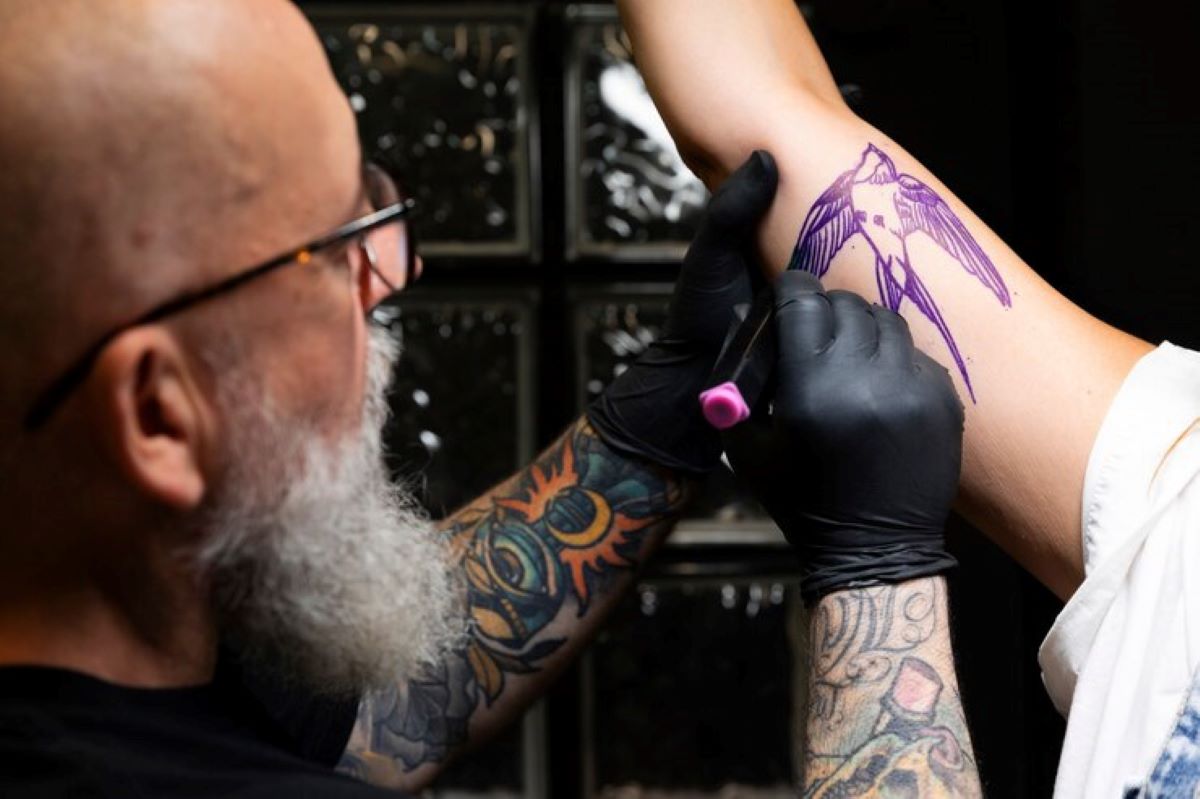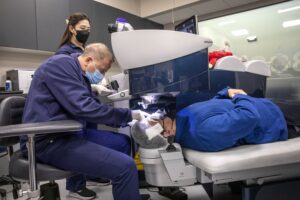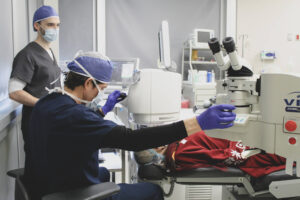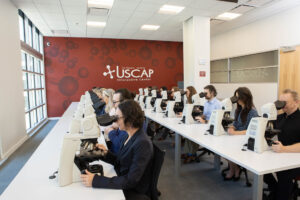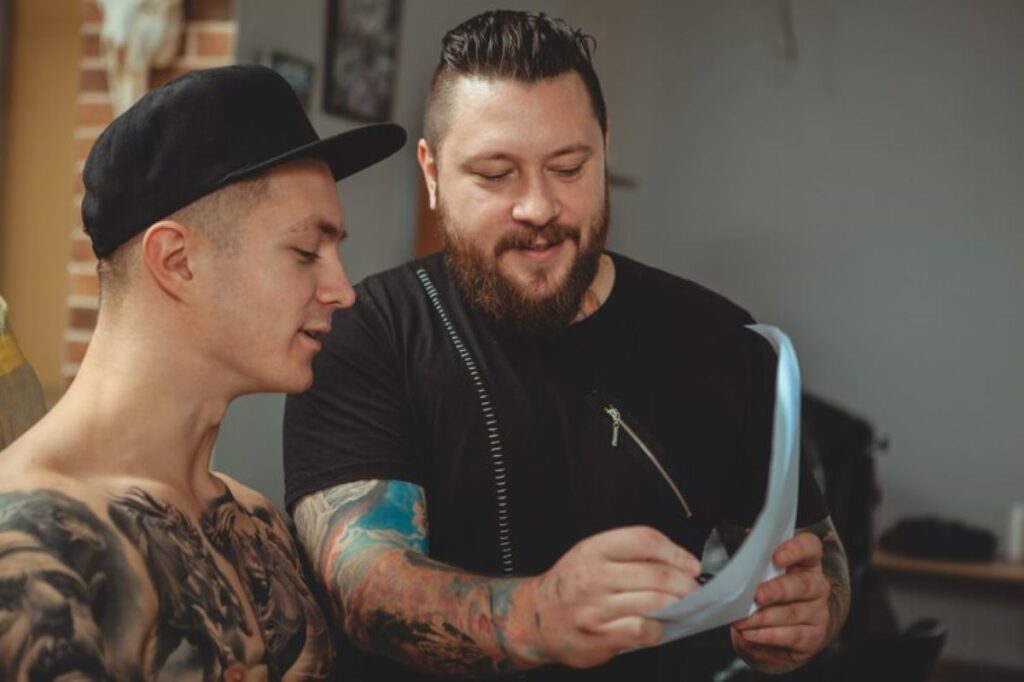That said, out of all of the cataract treatment options, cataract surgery Sydney is by far the most effective. The process involves removing the cloudy lens in the affected eye and replacing it with a new intraocular lens implant to correct the person’s vision.
Sydney Tattoo Artists: The Rising Talent Changing the Local Tattoo Scene
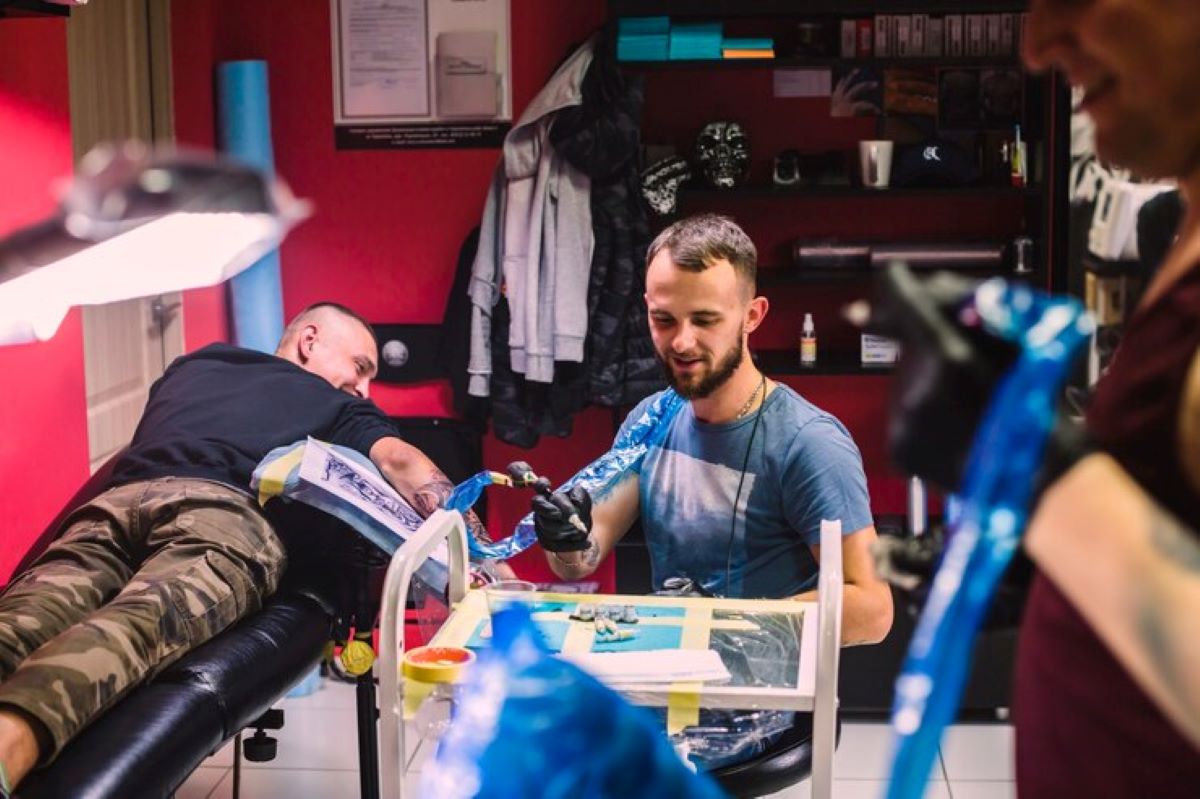
Why Are Emerging Tattoo Artists Important in Sydney?
Emerging tattoo artists are changing Sydney’s local tattoo scene by bringing in new ideas that go against traditional methods. These up-and-coming talents connect established practices with modern creativity, creating an environment where artistic exploration thrives.
The Impact of Sydney’s Tattoo Culture
Sydney has long embraced a diverse range of artistic expression within its tattoo culture. Many tattoo places Sydney draw inspiration from Indigenous Australian heritage while also incorporating global influences from Japanese, American, and European tattoo traditions. This broad acceptance of body art as a legitimate creative form makes the city an ideal environment for artists to develop and refine their unique styles.
Emerging talent across tattoo places Sydney continues to bring fresh energy and innovation, ensuring the local tattoo scene remains dynamic rather than stagnant. This constant evolution allows clients to access both traditional craftsmanship and cutting-edge artistic approaches throughout the city.
The Blend of Tradition and Modernity
The current landscape is defined by a combination of traditional techniques and contemporary aesthetics. Sydney tattoo artists now effortlessly combine age-old practices like Japanese irezumi with modern styles such as minimalism and geometric designs. This fusion results in unique artwork that pays homage to the history of tattooing while pushing creative limits.
Expanding Artistic Possibilities
New artists introduce unconventional methods into established studios, broadening the range of styles accessible to clients seeking personalized body art.
How Do Indigenous Influence and Global Trends Shape Sydney’s Unique Tattoo Culture?
Sydney tattoo culture thrives on a distinctive blend where ancient indigenous traditions meet contemporary international movements. Artists draw inspiration from Aboriginal dot work, symbolic patterns, and storytelling methods that have existed for thousands of years, weaving these elements into modern compositions that honor cultural heritage while pushing artistic boundaries.
The city’s position as a multicultural hub creates natural opportunities for cross-pollination between styles. Japanese irezumi techniques sit alongside Polynesian tribal patterns, while European realism merges with indigenous symbolism. This diversity extends beyond visual aesthetics into the technical approaches artists employ—from hand-poked methods reminiscent of traditional practices to cutting-edge machine work that achieves photorealistic detail.
Indigenous tattoo traditions inform not just the imagery but the philosophy behind Sydney’s approach to body art. The concept of tattoos as markers of identity, spiritual connection, and personal narrative resonates deeply within the local scene. Artists treat each piece as a meaningful collaboration rather than mere decoration, reflecting the cultural weight tattoos have carried in Aboriginal communities for millennia.
Global tattoo trends filter through Sydney’s studios with a distinctly local interpretation. Watercolor techniques gain earthy Australian color palettes, minimalist designs incorporate native flora and fauna, and neo-traditional work often features indigenous motifs reimagined through contemporary lenses. This synthesis creates a tattoo culture that feels simultaneously connected to worldwide movements and uniquely Sydney.
Who Are the Notable Emerging Tattoo Artists in Sydney and How Are They Innovating the Industry?
Mike Gong is one of the leading up-and-coming tattoo artists in Sydney. He skillfully combines traditional and modern design elements in his work. His tattoos pay homage to classic techniques while also pushing creative boundaries. This unique approach has attracted clients who want artwork that respects tattoo history but isn’t limited by it.
Carly Chen has found her own unique style with her minimalist geometric designs. Her tattoos feature clean lines and precise angles, showing that powerful statements can be made without intricate details. Chen’s innovative approach proves that simplicity can be just as impactful as complexity, appealing to clients who appreciate understated elegance and mathematical precision in their body art.
Ben Walker delves into the world of abstract art, turning skin into canvases for experimental designs that challenge traditional tattoo aesthetics. His willingness to explore unconventional ideas has opened up new possibilities for clients looking for artwork that defies categorization. Walker’s abstract interpretations inspire other artists to think outside established genres.
These three artists are collectively broadening the range of tattoo styles available in Sydney by introducing new visual languages. Their diverse approaches—whether through blending historical influences, embracing geometric simplicity, or experimenting with abstraction—offer clients options that previous generations may not have considered. This variety reinforces Sydney’s reputation as a city where tattoo innovation thrives alongside respect for tradition.
How Established Artists Like Danielle Sweeney and Sammy H Influence the Local Tattoo Scene
Established tattoo artists in Sydney like Danielle Sweeney and Sammy H set the standard for technical excellence that defines the city’s reputation. Sweeney’s intricate color work demonstrates mastery of saturation and blending, creating pieces where vibrant hues remain crisp years after application. Her approach to layering pigments has become a study reference for experienced tattooists developing their color theory skills.
Sammy H’s expertise in realism and fine line work pushes the boundaries of what’s possible on skin. His portrait tattoos capture subtle expressions through precise needle control, while his fine line pieces achieve delicate detail without compromising longevity. This technical precision has influenced countless artists refining their hand stability and shading techniques.
Both artists actively mentor emerging talent through:
- Studio apprenticeships that emphasize fundamentals
- Sharing technique breakdowns on professional platforms
- Guest spots that expose newer artists to different working methods
- Portfolio reviews that guide artistic development
Their signature styles serve as living proof that consistent quality builds lasting careers, inspiring the next generation of Sydney Tattoo Artists: The Rising Talent Changing the Local Tattoo Scene to develop their own distinctive approaches.
Why Is Thirteen Feet Tattoo Studio Considered a Hub for Artistic Innovation Among Sydney Tattoo Artists?
Thirteen Feet Tattoo studio is one of the best places in Haymarket for innovative body art, bringing together talented artists in one location. Situated in the busy Haymarket area of Sydney, this studio has earned its reputation through its diverse offerings, technical excellence, and a collaborative tattoo environment that promotes artistic exploration.
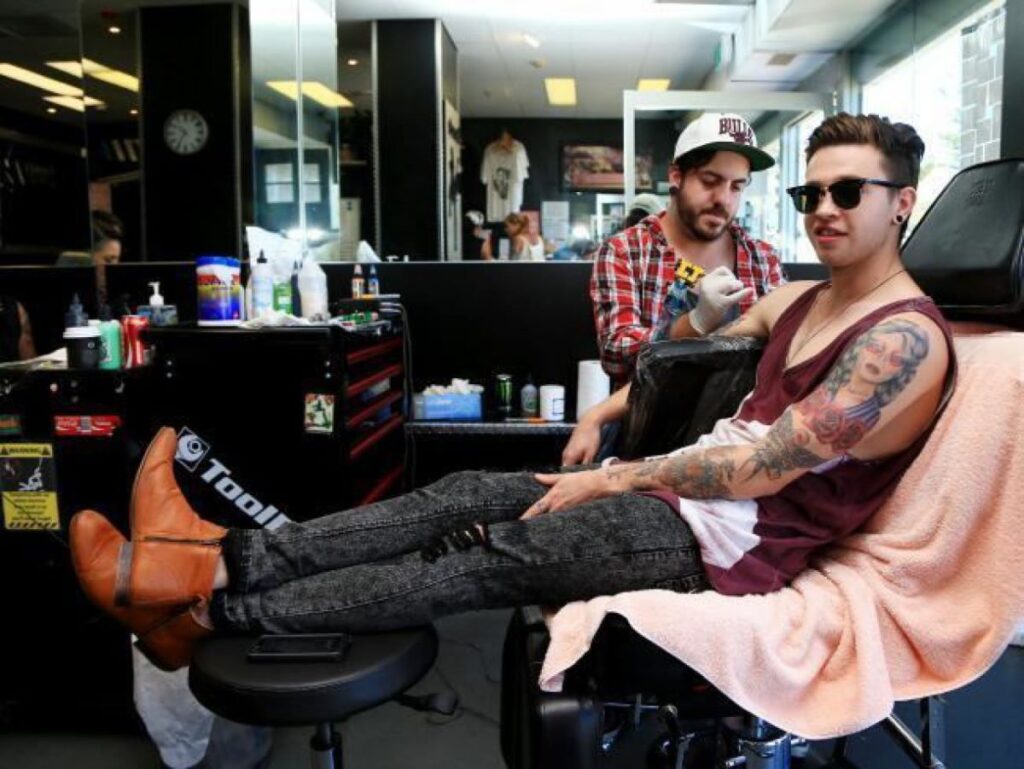
The Talented Artists at Thirteen Feet Tattoo Studio
The resident artists at Thirteen Feet Tattoo studio have a wide range of specializations:
- Alys combines traditional Japanese techniques with anime aesthetics, drawing inspiration from Studio Ghibli and modern pop culture
- Patrick creates bold neo-traditional Japanese blackwork tattoos that leave a lasting impression
- Rhys Gordon brings years of expertise in authentic Japanese irezumi style
- Sugar merges Neo Japanese and Neo Traditional styles with dramatic brush stroke effects
- Hari Union showcases versatility in Traditional Americana, Japanese styles, Black & Grey realism, and portrait work
- Sid delivers exceptional fine line tattoos with precision and delicacy
- Fernando Hideki masters various design styles including Traditional, Japanese, Blackwork, Script, and Polynesian
- Antone El pushes artistic boundaries through hyperrealism and surrealism techniques
The Power of Collaboration
This concentration of diverse expertise creates an energetic environment where artists share techniques, challenge norms, and inspire each other to reach new creative heights. The studio’s layout and culture encourage regular interaction among artists, enabling them to observe different approaches and integrate fresh methods into their own practice.
The Most Popular Tattoo Styles Currently Shaping The Industry In Sydney
Popular tattoo styles Sydney includes five main styles that define the local industry. These styles are Traditional Japanese tattoos, realism, watercolor, neo-traditional tattoos Sydney, and classic American Traditional. Each of these styles has a significant following among clients looking for unique body art.
Traditional Japanese Tattoos
Traditional Japanese irezumi tattoos continue to have a strong influence in the industry. Artists like Rhys Gordon at Thirteen Feet Tattoo are known for their skillful execution of full-body designs featuring koi fish, dragons, and cherry blossoms using authentic hand-poked techniques. On the other hand, Patrick’s neo-traditional Japanese blackwork offers a modern twist by incorporating bold linework and contemporary shading methods that appeal to younger clients.
Realism Tattoos
Specialists in realism such as Sammy H and Antone El are pushing the boundaries of technique with their hyperrealistic portraits and surrealist compositions. Their artwork showcases a mastery of light, shadow, and skin tone gradation that brings photographs to life as works of art.
Watercolor Tattoos
Watercolor techniques have evolved beyond Linda Lee’s signature floral pieces. Artists now experiment with abstract splashes and gradient effects that mimic paint on canvas. This style attracts clients who are looking for softer and more artistic expressions.
Neo-Traditional Tattoos
Artists specializing in neo-traditional tattoos Sydney combine vintage American imagery with contemporary color palettes and exaggerated proportions. Sugar’s dramatic brush stroke effects exemplify this fusion, creating pieces that pay homage to tradition while embracing modern aesthetics.
Minimalist and Abstract Designs
The fastest-growing segment in the industry is represented by minimalist and abstract designs. Carly Chen’s geometric work and Ben Walker’s abstract compositions appeal to professionals seeking subtle yet meaningful body art. Sid’s exceptional fine line tattoos demonstrate how delicate linework can create a powerful visual impact without overwhelming coverage.
How Do Collaboration And Client Interaction Enhance The Quality Of Tattoo Artistry In Sydney?
Client collaboration tattoos Sydney thrive on open dialogue between artist and wearer. Artists like Mike Gong and Carly Chen prioritize understanding each client’s vision, lifestyle, and personal story before sketching a single line. This communication transforms generic ideas into deeply personal artwork that resonates with individual experiences.
The typical consultation process involves multiple touchpoints:
- Initial discussion where clients share reference images, explain symbolism, and discuss placement
- Sketch review sessions allowing clients to request adjustments before committing to the design
- Size and placement testing using stencils to visualize how the tattoo flows with body contours
- Color palette selection tailored to skin tone and personal aesthetic preferences
Artists at studios like Thirteen Feet Tattoo dedicate substantial time to these consultations, recognizing that rushed decisions rarely yield satisfying results. Sid’s fine line work, for example, requires precise input about line weight and negative space usage—details only clarified through thorough discussion.
The personalized tattoos process creates emotional investment from both parties. When Alys incorporates a client’s favorite Studio Ghibli character into traditional Japanese composition, the resulting piece carries significance beyond aesthetic appeal. This collaborative approach explains why Sydney’s tattoo scene produces artwork that clients wear with pride for decades, each piece representing a genuine partnership between artistic expertise and personal narrative.
Best Practices For Preparing For A Tattoo Session In Sydney
Proper preparation begins 24-48 hours before your appointment.
Stay Hydrated
Staying well-hydrated helps your skin remain supple and receptive to ink, making the tattooing process smoother for both artist and client. Drinking plenty of water in the days leading up to your session ensures optimal skin condition.
Avoid Alcohol
Avoiding alcohol for at least 24 hours before your tattoo is essential. Alcohol thins the blood, leading to excessive bleeding that can push out ink and compromise the final result. This same principle applies to blood-thinning medications and supplements—consult your artist about any prescriptions.
Be Mentally and Physically Ready
Mental and physical readiness becomes particularly important for longer sessions. Eat a substantial meal 1-2 hours beforehand to maintain stable blood sugar levels. Pack snacks and drinks for extended appointments, as low energy can increase pain sensitivity and make sitting still more challenging.
Get Enough Sleep
Getting adequate sleep the night before helps your body manage discomfort better.
Dress Comfortably
Wear comfortable, loose-fitting clothing that provides easy access to the tattoo area while keeping you relaxed throughout the session.
Other Resources : Body Art & Tattoo: Infection Prevention & Control

How Do Aftercare Practices Contribute To Long-Term Quality Maintenance Of Tattoos In The Australian Climate?
Proper tattoo aftercare Sydney protocols directly determine how well your ink heals and maintains its vibrancy long-term. Australia’s intense UV exposure and climate make diligent aftercare essential for preserving tattoo quality.
Cleaning Methods During Healing
Wash your fresh tattoo 2-3 times daily with lukewarm water and fragrance-free antibacterial soap. Pat dry gently with clean paper towels—never rub the area. Avoid soaking in baths, pools, or ocean water for at least two weeks.
Moisturizing for Ink Protection
Apply thin layers of unscented, hypoallergenic moisturizer 3-4 times daily once the tattoo stops weeping. Products containing vitamin E or shea butter help maintain skin elasticity and ink brightness without clogging pores.
Sun Protection Strategies
Keep your healing tattoo completely covered or indoors during peak UV hours. Once healed, apply SPF 50+ sunscreen before any sun exposure—this single practice prevents premature fading better than any other method. These healing tattoos tips Australia artists recommend become lifelong habits for maintaining your investment in body art.
More to Read : Bondi Beach Tattoo Shop Review: What to Expect in a High-Demand Beach Studio
